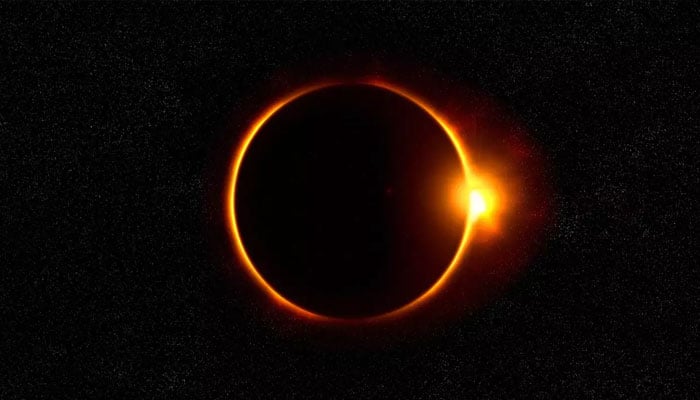Everything you need to know about April 8 total solar eclipse 2024
This is your brief guide about the April 8 total solar eclipse 2024
On April 8, North America will witness a total solar eclipse, a rare spectacle where the moon will momentarily obscure the sun, casting an afternoon shadow.
The eclipse will traverse Mexico, 15 US states, and a small part of eastern Canada. Those not in the direct path of totality will still witness a partial eclipse.
This year's eclipse will cover a broader and more populated path across the US than previous ones. NASA estimates that 31.6 million people live within the path of totality, where the total eclipse will be visible. An additional 150 million are within 200 miles of this path.
Where to See It:
The eclipse will pass through Texas, Oklahoma, Arkansas, Missouri, Illinois, Kentucky, Indiana, Ohio, Pennsylvania, New York, Vermont, New Hampshire, and Maine. Small sections of Michigan and Tennessee will also experience totality, weather permitting.
After crossing into Canada, it will pass over southern Ontario, Quebec, New Brunswick, Prince Edward Island, and Cape Breton.
Cities along the path of totality:
- Dallas: Partial eclipse begins at 12:23 p.m. CT and totality at 1:40 p.m.
- Little Rock, Arkansas: Partial eclipse begins at 12:33 p.m. CT and totality at 1:51 p.m.
- Cleveland: Partial eclipse begins at 1:59 p.m. ET and totality at 3:13 p.m.
- Buffalo, New York: Partial eclipse begins at 2:04 p.m. ET and totality at 3:18 p.m.
- Lancaster, New Hampshire: Partial eclipse begins at 2:16 p.m. ET and totality at 3:27 p.m.
When to Look Up:
The exact timing of the eclipse will vary depending on your location. Totality can last up to 4 minutes and 28 seconds in some spots.
Those outside the path of totality can still view a partial eclipse, visible throughout the contiguous US, or by tuning into a NASA livestream.
Safety First:
Never look directly at the sun, even during an eclipse.
Viewing a solar eclipse requires special precautions. It is never safe to look directly at the sun, even when partially or mostly obscured. Eclipse glasses, much darker than regular sunglasses, or pinhole projectors are necessary to prevent eye damage.
Beware of counterfeit eclipse glasses. Genuine pairs have silver lenses on the front, black on the inside, with clear manufacturer details. They should also display the ISO logo and code "IS 12312-2".
If you don't have eclipse glasses, a homemade pinhole projector can be used to safely view the eclipse.
Upcoming solar eclipses
2026:
- Date: April 20, 2026
- Visibility: Primarily over the Arctic Ocean, with some visibility in Greenland, Iceland, Portugal, and northern Spain.
2027:
- Date: April 8, 2027
- Visibility: Visible in Spain and a swath of northern Africa.
2033:
- Date: March 30, 2033
- Visibility: Total solar eclipse visible from North America, primarily over Alaska.
2044:
- Date: August 23, 2044
- Visibility: Total solar eclipse will cross Montana, North Dakota, South Dakota, parts of Canada, and Greenland.
2045:
- Date: August 12, 2045
- Visibility: Total solar eclipse to cross the continental U.S. coast-to-coast, cutting through California, Nevada, Utah, Colorado, New Mexico, Oklahoma, Kansas, Texas, Arkansas, Missouri, Mississippi, Louisiana, Alabama, Georgia, and Florida.
These upcoming solar eclipses offer sky-watchers around the world a chance to witness the awe-inspiring alignment of celestial bodies, providing opportunities for both scientific study and personal wonderment.
-
Trump refuses apology for video depicting Obama as apes amid growing backlash
-
US appeals court affirms Trump’s immigration detention policy
-
Epstein probe: Bill, Hillary Clinton call for public testimony hearing
-
Epstein ties: UK police search properties in probe into Peter Mandelson
-
Three killed, several injured after car crashes straight into Los Angeles supermarket
-
Inside Jeffrey Epstein's troubling final days before suicide
-
Woman, five others accused of plot to kill judge 'to free jailed lover'
-
Japan’s cherry blossom festival canceled in Fujiyoshida; Here’s what to know












